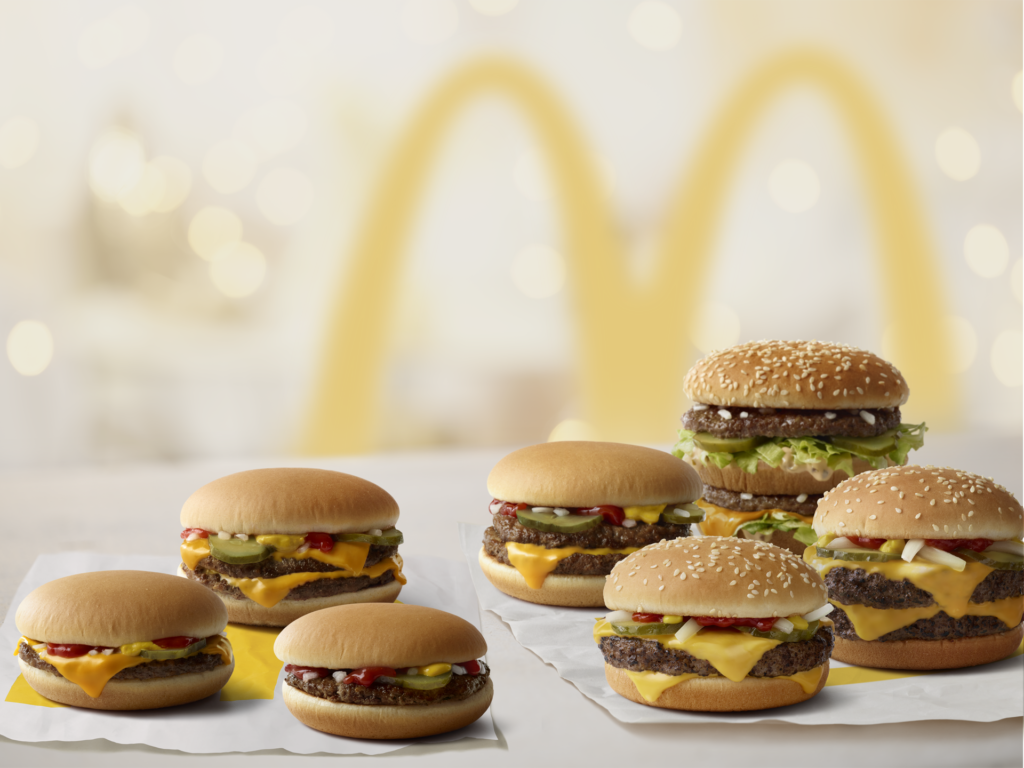McDonald’s USA has announced that their classic burgers will no longer contain any artificial preservatives, flavors or colors. Their pickle toppings will still contain preservatives but customers are able to skip them if they would like. This new change to McDonald’s’ iconic burgers, such as the Big Mac, will affect all 14,000 restaurants in the US which makes this move a major milestone in McDonald’s history as a fast food chain.
According to a company release, the changes will be made to all classic burgers which include hamburgers, cheeseburgers, double cheeseburgers, McDoubles, Quarter Pounders with Cheese, double Quarter Pounders with Cheese and Big Macs.
“From switching to 100 percent fresh beef in our quarter-pound burgers, cooked right when ordered, to removing artificial preservatives in our Chicken McNuggets, and committing to cage-free eggs by 2025, we have made significant strides in evolving the quality of our food,” said Chris Kempczinski, McDonald’s USA President. “We know quality choices are important to our customers, and this latest positive change to our classic burgers demonstrates our committed journey to leading with the customer and building a better McDonald’s.”
As of Wednesday, nearly two-thirds of the company’s national burgers and sandwiches contain no artificial preservatives, flavors or added colors, according to McDonald’s. In order to achieve this change, the company had to remove all artificial preservatives from their cheese toppings, Mac Special Sauce, regular buns, Quarter Pounder buns and Big Mac buns.
These changes come as McDonald’s takes steps towards becoming a more sustainable company. In fact, the company made several commitments towards sustainability and environmental initiatives throughout the past few years. Previous commitments include transitioning to cage-free eggs in the US and Canada by 2025 and sustainably sourcing all McCafé coffee by 2020. The company is also sourcing some of their beef products from suppliers that participate in sustainability programs that align with the Global Roundtable for Sustainable Beef principles and criteria. In addition, the company made headlines earlier this year for their initiative to use 100 percent sustainable packaging for all their products by 2025.
However, McDonald’s isn’t the only food company that is investing in sustainability. Earlier this spring, food giant Nestlé launched a sustainability initiative in which the company plans on using 100 percent recyclable packaging by 2025. Other food companies such as Blue Apron and General Mills also boast sustainability initiatives.
This trend seems to continue to grow as consumers voice their interest in bettering their health, the environment and animal welfare. This ongoing movement can mostly be attributed to millennials who are known to actively look for products that are healthy and sustainable. In fact, millennials have been found to be willing to pay more for sustainable and healthy products. In addition, a recent study found that 70 percent of food companies with animal welfare certified products have seen an increase in sales. This really speaks towards the changing food space and how food companies are trying to catch up to new consumer demands.
“We understand that now more than ever, people care about their food – where it comes from, what goes into it and how it is prepared – and we are committed to make changes to our menu our guests feel good about,” said Linda VanGosen, McDonald’s Vice President of Menu Innovation.












Join or login to leave a comment
JOIN LOGIN